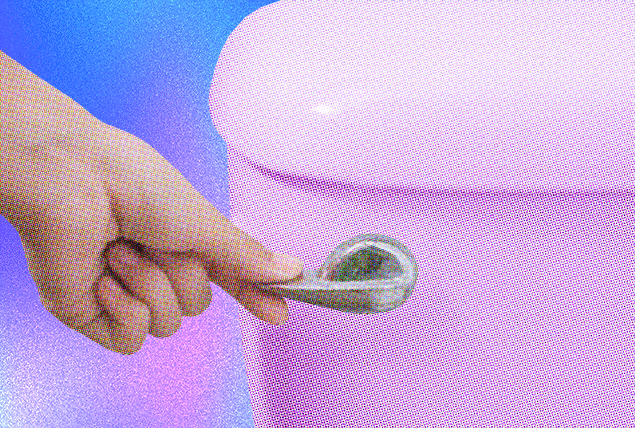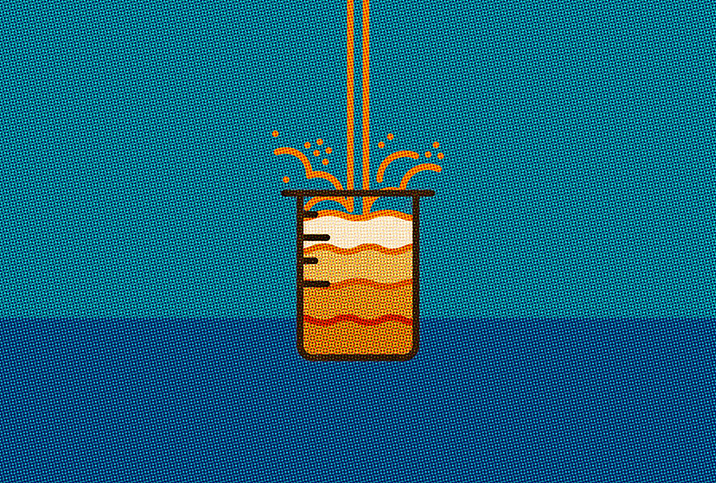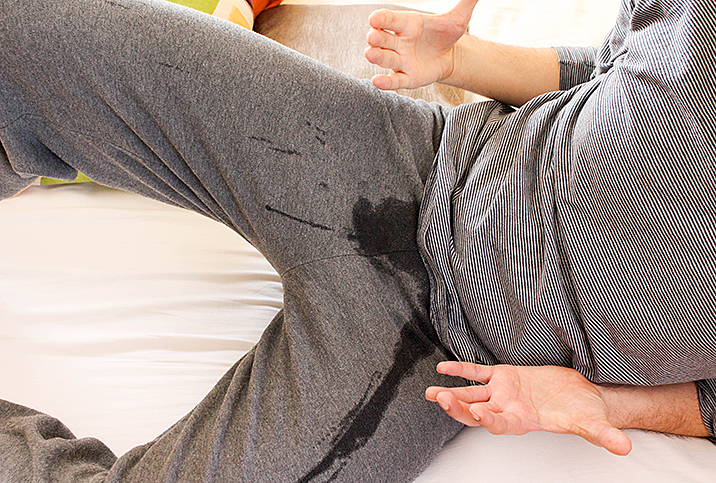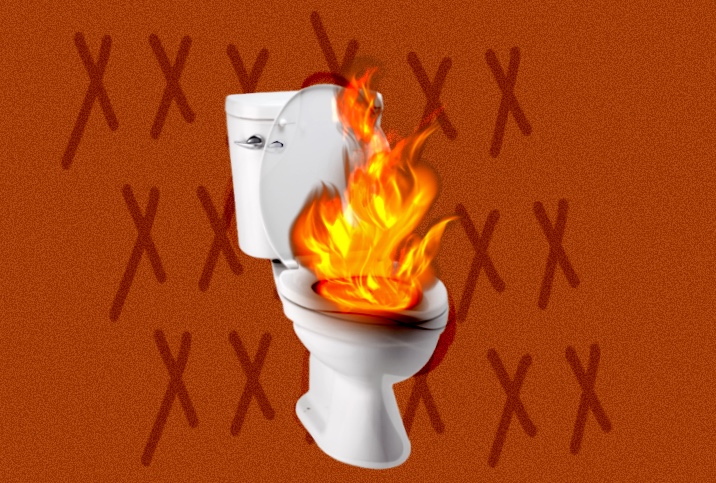Frequent Urination vs. Excessive Urination: The Important Differences

The Urology Care Foundation estimates that up to 30 percent of men in the United States live with overactive bladder symptoms—and this doesn't include men living with various types of incontinence or problems with excessive urination and nighttime urination.
Urination problems can impact your life in several ways, including sexually. But there are different types of urination problems. Some conditions cause you to urinate more frequently, but the volume remains consistent. Other conditions cause men to urinate much more than is considered "normal."
So what's the difference between frequent urination and excessive urination?
Frequent urination vs. excessive urination
When comparing the two problems, S. Adam Ramin, M.D., a urologic surgeon and the medical director of Urology Cancer Specialists in Los Angeles, defines them as follows:
- Frequent urination. This refers to frequent urges that drive a person to the bathroom to empty the bladder. The body may be making the correct amount of urine, but the patient develops constant urges to urinate despite the bladder not reaching full capacity.
- Excessive urination (polyuria). The body produces urine at a very fast pace, requiring a person to go to the bathroom very frequently. In this case, there is a high volume of urine production, leading the bladder to reach its full capacity frequently.
"Frequent urination is the need to urinate more often than usual, typically more than eight times a day," said Justin Houman, M.D., a reproductive urologist and men's health specialist at Tower Urology in Los Angeles and the medical director for Bastion Health, an app-based telehealth platform for men. "Excessive urination, on the other hand, refers to passing an abnormally large amount of urine each time you go."
Polyuria (excessive urination) is defined as passing more than 3 liters of urine daily. That is slightly more than 3 quarts.
Causes of urination issues
Frequent urination and excessive urination have different causes.
According to Ramin, the causes of frequent urination include the following:
- Excess urine production
- Overactive bladder (OAB)
- Spinal nerve irritation/injury
- Diabetes nerve injury to the bladder
- Urinary tract infection (UTI) with acute cystitis
- Chronic cystitis
- Bladder tumor
- Pelvic mass
- Bladder stone
He listed these problems as some of the causes of excessive urination:
- Drinking too many fluids
- Taking diuretic medications
- Having a condition called SIADH (syndrome of inappropriate antidiuretic hormone production)
- Diabetes mellitus
- Diabetes insipidus
Houman stressed it's important to distinguish between frequent and excessive urination because the causes and treatments can be different.
"Accurately identifying the problem can help guide the appropriate treatment, prevent complications and improve quality of life," he explained.
Urination problems and sexual health
In both conditions, Ramin explained that the patient might need to constantly use the bathroom. This can, in turn, disrupt sexual activity.
"The urge to urinate can get worse with sexual arousal, which can then cause disruption of activity to go to the bathroom," he said.
Many underlying conditions leading to frequent or excessive urination could also cause erectile dysfunction (ED), independent of any urination problems.
"For instance, diabetes not only causes urinary frequency by leading to neuropathy of the bladder, but it causes vascular and nerve injuries to the penis leading to ED," he explained.
Frequent and excessive urination could also affect sexual health by causing physical discomfort and embarrassment, leading to decreased sexual desire and satisfaction, Houman said.
Treatment options for frequent and excessive urination
As with any urination problems, the treatment starts with seeing your healthcare provider. They can take a medical history, give you a full physical examination and take a urine sample to test for infection, traces of blood or other abnormalities. You may need to be referred to a specialist, such as a urologist, for further urodynamic tests.
Frequent and excessive urination are often not standalone conditions. There often may be a root cause or another underlying condition contributing to the concern. However, typical treatment options for frequent urination can include the following:
- Lifestyle changes. These could include reducing fluid intake or avoiding drinking before bedtime, diet modification to reduce bladder-irritating food and drinks, and maintaining a healthy weight.
- Pelvic floor muscle exercises. Kegel exercises are an example.
- Behavioral interventions. Scheduled toilet trips or bladder retraining are habits that can help.
- Medications. Drugs that relax the bladder muscle are common.
- Biofeedback. Such information can help you learn how to better control your pelvic muscles.
- Botox. This can be injected into the bladder to cause it to relax if a person does not respond to other medications or lifestyle changes.
- Spine surgery, injections or medication. Spinal problems call for special attention.
Excessive urination treatments might include:
- Managing underlying medical conditions, such as SIADH or diabetes insipidus
- Adjusting medications
- Reducing fluid intake
- Surgery, in severe cases
Treatment for excessive urination usually comes down to addressing the root cause of the problem. For instance, with any uncontrolled conditions like diabetes, adjusting medication and managing the condition are vital.
Regardless of the type of urinary problem you may be dealing with, treatments are available. Whether it's an increase in frequency or volume, your healthcare provider can help find the root cause and establish a treatment plan.
It's not always easy for men to seek help, especially for something as personal and sensitive as urinary troubles. Plus, a lot of them don't have a physician they see regularly, making that first step difficult. Video visits have become a viable option for most people, and more physicians and therapists have added them as a service. They're a good way to see a doctor quickly, as many offer same-day appointments. Then, if follow-up is required, you have your foot in the door. Giddy telehealth makes it easy to get connected to a qualified healthcare professional who can help with a variety of conditions.


















